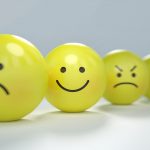Natural Caffeine or Synthetic? A Brief Comparison by Joan Kent, PhD
Recently, a colleague became violently ill after having consumed a gym “energy product” containing caffeine. Because a similar thing happened to me several years ago, I decided to check into this.
Caffeine occurs naturally in coffee beans, tea leaves, guarana, cacao, and a total of about 60 different plants. All of them provide heightened mental focus and cognition, as well as a boost in exercise performance.
Natural caffeine typically provides those benefits without such side effects as insomnia, anxiety, or nervousness.
Yet I Will Disagree Somewhat Here
I had a client who was experiencing a high degree of anxiety that abated only when she systematically decreased her daily coffee intake. Another client had high blood pressure that was directly linked to the coffee she drank. Still another client complained that his coffee drinking caused chronic nervousness. Personally, I’ve experienced extremely high heart rates during workouts after consuming moderate quantities of tea. But I digress.
How Do Natural & Synthetic Caffeine Differ?
Natural caffeine is said to provide a ‘cleaner’ energy boost and a more sustainable energy lift compared with synthetic.
Due to its lower costs, synthetic caffeine use has been rising. Synthetic caffeine is known as caffeine anhydrous. It’s cheap to make and quickly absorbed, and it provides a sudden energy boost, much faster than that of natural caffeine. It also leads to a sudden energy crash that is worse than any crash experienced with natural caffeine.
As mentioned above, natural caffeine is found in plants. Synthetic caffeine derives from chloroacetic acid and urea. Products are often sold as energy drinks or pre-workout drinks. However, the two types of caffeine are said to be chemically identical. This seems confusing, but let’s go with it for now.
The processing of synthetic caffeine exposes it to harsh chemicals, including ethyl acetate, methylene chloride and carbon dioxide. These chemicals are then “cleaned” out of the caffeine with even more chemicals.
Natural caffeine products need no chemicals for processing, and the sources are typically listed by name: green tea extract, green coffee beans, guarana, and so on.
For a relatively safe yet effective ergogenic (workout) aid, natural caffeine would seem to be a better alternative. It can boost your exercise output and help you avoid sudden energy crashes. Keep in mind that the caffeine-induced vomiting referenced at the start of this post were both due to synthetic caffeine.
Bottom line: Natural caffeine appears to be preferable to synthetic.
If you’re looking for workout tips that are both helpful and healthful, I invite you to check out LastResortNutrition and grab your free No-Junk Workout consult. Discover how to get more from your exercise sessions without resorting to chemicals. Or feeling worse afterward.
Join me next time for info on the various brain benefits of tea.
Brought to you by Dr. Joan Kent, best-selling author of Stronger Than Sugar.



